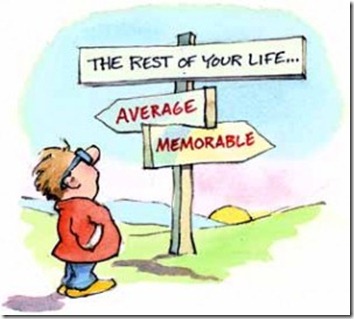“Do Better”
 I have recently begun cultivating a friendship with the youngest of my ten nieces and nephews, a young lady who is currently a college junior. In discussing her the other night with my wife, Christine pointed out that our niece speaks in complete sentences and eschews entirely the phrases of her generation: “like,” “well I go and then she goes,” “OMG,” “that’s sick,” and the immortal “unh” as space filler whenever the speaker is unable to formulate a coherent thought. But I think what most impresses me about this young lady is that she reads, and not just books for her classes.
I have recently begun cultivating a friendship with the youngest of my ten nieces and nephews, a young lady who is currently a college junior. In discussing her the other night with my wife, Christine pointed out that our niece speaks in complete sentences and eschews entirely the phrases of her generation: “like,” “well I go and then she goes,” “OMG,” “that’s sick,” and the immortal “unh” as space filler whenever the speaker is unable to formulate a coherent thought. But I think what most impresses me about this young lady is that she reads, and not just books for her classes.
When I was about her age I encountered a quote by Socrates that has always stayed with me: “The unexamined life is not worth living.” Interestingly enough, just now when I searched the Internet to make sure I had the wording correct, I encountered a column in which the writer asserted that those who live by such things are elitists, which in a sense, simply makes my point. Not all of us are going to pursue the more arcane things in life, but I do strongly feel that those who read only enough to get themselves through their formal schooling and then avoid reading thereafter cheat themselves of much of the very essence of life. And the very fact that he would make such a statement leads me to my second point, which is the anti-intellectual bias that has done so much to retard this country’s progress at times.
I am currently reading “The Reckoning” by David Halberstam, which “tells how the emphasis changed from making cars to making profits, letting quality slip and innovation lag at a firm formerly the symbol of American industrial genius. Meanwhile Nissan was rising from the ashes of war with grim determination, embracing any sacrifice to improve its product.”
 It’s a book that exists at a number of levels, which is true of the other books I’ve read by this author. He tends to dig very deeply into the history of things and the history of all the people involved. One of the lesser characters in this drama who surely would have been a major player in a more reasonable world was Donald Frey, who had a PhD and had come to Ford Motors from academia. He had been working as an assistant professor of engineering doing purely theoretical work in metallurgy, but he was so well-respected in his field, and Ford Motors was so in need of his talents that they tripled his salary in order to get him. Once they had had him on board, though, he was just an employee, subject to the same whims and petty jealousies of any other employee.
It’s a book that exists at a number of levels, which is true of the other books I’ve read by this author. He tends to dig very deeply into the history of things and the history of all the people involved. One of the lesser characters in this drama who surely would have been a major player in a more reasonable world was Donald Frey, who had a PhD and had come to Ford Motors from academia. He had been working as an assistant professor of engineering doing purely theoretical work in metallurgy, but he was so well-respected in his field, and Ford Motors was so in need of his talents that they tripled his salary in order to get him. Once they had had him on board, though, he was just an employee, subject to the same whims and petty jealousies of any other employee.
Halberstam had this to say about him: “At Ford he was the house egghead. His colleagues would find not only the New York papers on his desk but British ones as well, the Manchester Guardian and the Economist. There were always books there too, and he was considered to be almost as bad as Robert McNamara in wanting to talk about a book he had just read; even more annoying, many of these books were not about business, let alone the auto industry. ‘The trouble with Frey is that he’s too goddamn smart for his own good,’ Henry Ford II once said of him, and he did not exactly mean it as a compliment. ‘Maybe,’ Ford added, ‘he’s a genius. Maybe not. But he’s certainly a pain in the ass.’”
Halberstam went on to point out that although Frey had taught at the University of Michigan before going to Ford and was a true sophisticate, he was also in his heart a tinkerer of the kind that existed in America in the thirties and forties. He was exactly the kind of person Ford Motors most needed to be listening to in those days when they were doing little more than producing shabby cars for the American public, but this man was suspect because he read and studied and looked into the why of things in the abstract.
 Of course, the flip side of that was that people with that kind of curiosity also tend to have analytical minds, which is the very sort of thing Ford Motors was often in need of in those days when they had antiquated factories in which they were to produce modern car lines. It was a matter of priorities, really, or a test of values, if you prefer. All they were doing in those days was crunching numbers, figuring out how to make the largest possible profits in the shortest period of time, which necessarily precluded things like modernizing their manufacturing plants.
Of course, the flip side of that was that people with that kind of curiosity also tend to have analytical minds, which is the very sort of thing Ford Motors was often in need of in those days when they had antiquated factories in which they were to produce modern car lines. It was a matter of priorities, really, or a test of values, if you prefer. All they were doing in those days was crunching numbers, figuring out how to make the largest possible profits in the shortest period of time, which necessarily precluded things like modernizing their manufacturing plants.
A company given over to the pursuit of quality, as opposed to mindlessly maximizing profits to the virtual exclusion of every other factor would have made the sort of changes that were then being made at Japanese car manufacturers, which enabled the Japanese to eventually out-produce and out-sell the company that had pioneered automobiles. Perhaps the shakers and movers at Ford Motors might have done better to spend less time maneuvering for the next promotion and a bit more time examining their own lives. Better for them, better for Ford Motors, better for the country.
Joseph

